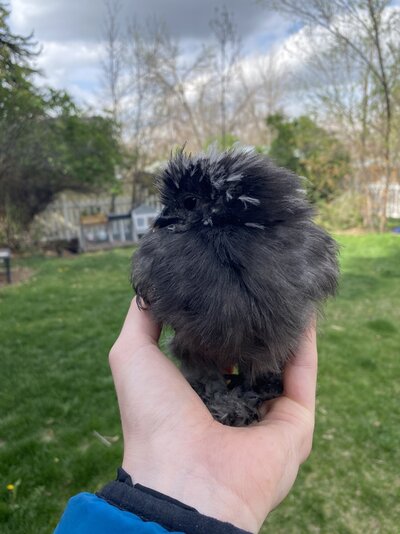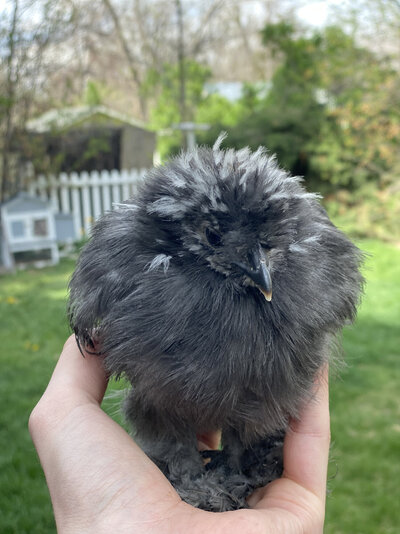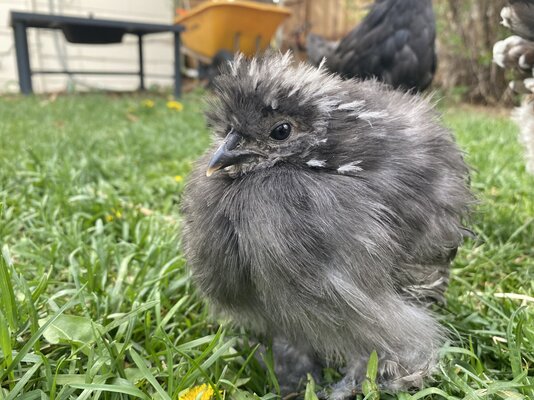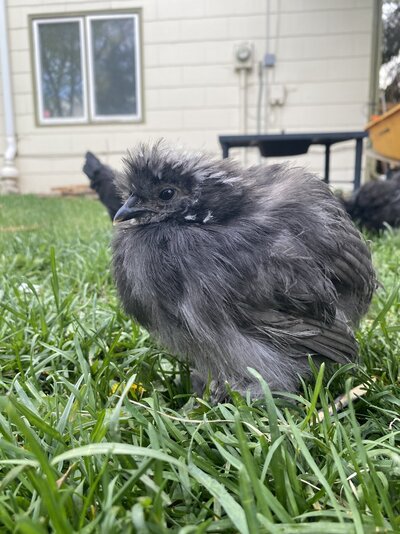- Jun 18, 2014
- 72
- 24
- 116
I have a 10 week old silkie who has always been the smallest of my chicks (smaller than my other silkie too) but now at 10 weeks she is much much smaller. She also doesn’t really do “chicken” things. I don’t see her pecking much, she won’t eat treats (all my other chicks eat treats like crazy) and she honestly just kind of stands there. She does move to eat and drink, and she’ll explore a little bit, but mostly just stands in the sun. She likes to be held, and will just stand and be pet. She seems kind of lethargic, but always has been like this. Is she malnourished, or not eating enough, or maybe being bullied away from the food from other chicks? Not sure why she’s way smaller than the other chicks, and doesn’t exert much energy. Thank you for your help!








